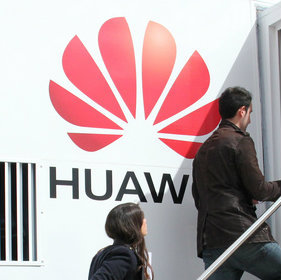
Huawei boss Eric Xu has let fly at "ignorant" US Senator Marco Rubio and other US lawmakers over their campaign against Huawei research partnerships with US universities.
Xu, the current rotating chairman of the Chinese vendor, said Rubio and fellow Republican representative Jim Banks were "closed-minded and ill-informed" about the Huawei Technologies Co. Ltd. research projects.
"It seems to me their bodies are in the information age but their minds are still in the agrarian age," Xu said during an interview with Light Reading in Shanghai on Wednesday.
Rubio, Banks and two dozen other members of Congress have written to Education Secretary Betsy DeVos calling for an inquiry into Huawei's campus partnerships, which give China access to advanced technologies, they claim.
"Their behavior shows not just their ignorance of science and innovation but also their own lack of confidence," Xu said.
Huawei's US opponents, however, cite earlier developments in Canada. According to an investigation by Toronto's Globe and Mail newspaper, the Chinese vendor managed to acquire the rights to a number of 5G-related technologies developed by Canadian researchers.
But Xu insists that Huawei's joint research projects are focused on basic science, and not on commercial products ready for deployment.
"It often takes decades or even hundreds of years of effort in research and development to translate science and theories into something that's available in the market," he said.
For all the latest news from the wireless networking and services sector, check out our dedicated mobile content channel here on Light Reading.
Moreover, universities have welcomed Huawei's collaboration with academic researchers, according to Xu, and Huawei has not enjoyed exclusive access to the research results.
Findings from joint research efforts have been "shared openly" through dissertations published by professors and students, he said.
"This approach of Huawei is recognised by universities around the world that we work with," said Xu. "They welcome the enhanced partnerships and greater support in terms of facilities, equipment and financial support so that together we can work on -- and hopefully resolve -- those big problems faced by humanity."
Professor Vivek Goel, the vice-president of research and innovation at the University of Toronto, said in an op-ed in the Globe and Mail that commercial partnerships are important in ensuring that research breakthroughs are taken into the market.
The university has entered into agreements with around 250 multinationals in the past decade to "bridge the chasm" between research ideas and commercialization.
"In these collaborations, we negotiate intellectual property rights that allow us to continue our research and educational work," wrote Goel.
— Robert Clark, contributing editor, special to Light Reading
Read more about:
AsiaAbout the Author(s)
You May Also Like











